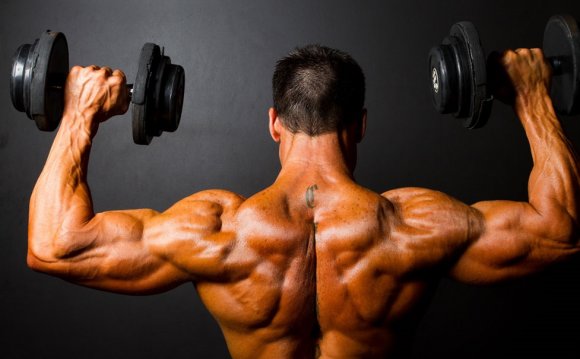
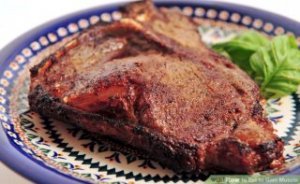 Eat sufficient amounts of protein. The rule of thumb is that you need between 1 and 1.5 times your body weight in grams of protein. For example, if you weigh 150 pounds, you should eat between 150 and 225 grams of protein per day if you want to consistently gain muscle. Full time bodybuilders can eat two to three times their body weight in grams of protein, and sometimes more, but for most of us that would be overkill. If you're overweight, substitute your ideal body weight and calculate in grams. Proteins that are great for building muscle include:
Eat sufficient amounts of protein. The rule of thumb is that you need between 1 and 1.5 times your body weight in grams of protein. For example, if you weigh 150 pounds, you should eat between 150 and 225 grams of protein per day if you want to consistently gain muscle. Full time bodybuilders can eat two to three times their body weight in grams of protein, and sometimes more, but for most of us that would be overkill. If you're overweight, substitute your ideal body weight and calculate in grams. Proteins that are great for building muscle include:
- Red meat like beef, pork, lamb, venison, bison, etc.
- Fish like tuna, salmon, swordfish, bass, trout, mackerel, etc.
- Poultry breast, from chicken, turkey, duck, etc.
- Eggs, especially egg whites. The yolk is high in cholesterol, but one or two a day isn't unhealthy.
- Dairy like milk, cheese, cottage cheese, yogurt, etc.
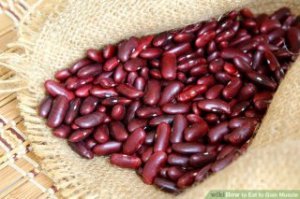 Complete vegetarian proteins include:
Complete vegetarian proteins include:
- Soy
- Quinoa
- Buckwheat
- Chia
- Hempseed
- Beans or legumes with rice
- 1.00: egg white, whey, casein, soy protein
- 0.9: beef, soybeans
- 0.7: chickpeas, fruits, black beans, vegetables, other legumes
- 0.5: cereals and derivatives, peanuts
- 0.4: whole wheat
- Carbs get an unfairly bad reputation from dieting guides. Because complex carbs are broken down slowly and have a low-glycemic index (not as much sugar), they are acceptable to eat after a workout, and especially in the morning at breakfast. Try to select carbohydrates low on the Glycemic Index, which are healthier and release their energy more slowly .
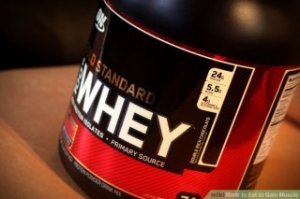 Good examples are:
Good examples are: - Brown Basmati Rice
- Rolled Oats
- Sweet Potato
- Wholemeal Rye Bread
- Wholemeal Spaghetti
- Olive, peanut, sunflower, canola, and avocado oils.
- Fish.
- Nuts.
- Flaxseed and pumpkin seeds.
- Soy products such as tofu or soymilk.
- Ice cream, candy bars, and packaged snack foods.
- High-fat cuts of meat.
- Lard, stick margarine, and vegetable shortening.
- Fried foods.
Consume plenty of fiber. Remember it is important to include green vegetables in your diet such as spinach or broccoli to ensure that you receive an adequate amount of vitamins. As well, green leafy vegetables are high in fiber which is essential for removing waste from the body.
Monitor your salt intake. It may be true that excessive consumption of salt can lead to hypertension but you lose tremendous amounts of sodium when you sweat. Also, sodium (a key electrolyte) aids in muscle contraction, which is one reason why it is found in many sports drinks.
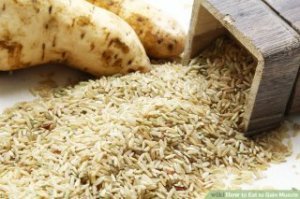
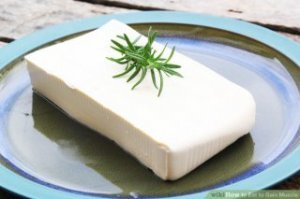
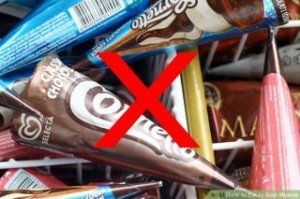
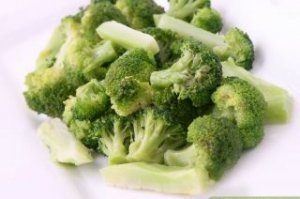
INTERESTING VIDEO

6 Foods That Will Help You Gain Weight
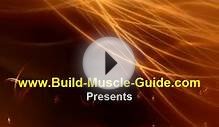
Gain Muscle Mass Fast
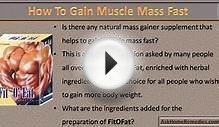
How Natural Mass Gainer Supplements Help To Gain Muscle ...









